|
| What omissions are deliberate? |
- I won't keep track of general humanities sites that lack a strong focus on philosophy. The same goes for sites in classics, cognitive science, linguistics, literature, politics, and religion. For more on the problem of deciding what counts as philosophy, see my notes below. However, I do maintain a list of guides to disciplinary guides, if you want to broaden your research beyond philosophy.
- I won't keep track of all the etexts of all philosophers. I do list Philosophers for whom home pages have been created. These home pages generally link to all the etexts of that philosopher so far online. I also list Etext collections, which should capture all the etexts by philosophers for whom home pages have not yet been created.
- I won't keep my own list of philosophy departments around the world. There are several good collections of these, and I link to them, together with a few other sites that review and rate graduate programs in philosophy.
- I won't keep my own list of philosophical mailing lists. I link to several good catalogues of these in my Mailing lists section.
- I won't keep my own list of philosophy professors with home pages. But I do link to the better collections of these professors.
- I won't try to keep track of individual philosophers who have put their own writings online, let alone the individual books and papers. But I do link to several lists of such papers.
- I urge authors of online papers and books to request links from the maintainers of these lists, not from me. Of these, I recommend that authors with a Ph.D. submit their work to Noesis.
- Together with online Journals and Preprints, these collections of online papers bring us as close as we are at the moment to a web-based index of the journal literature in philosophy.
- I generally avoid linking to sites devoted to the elaboration of a position, especially if the site omits links to other work in the same field or on the same topic. The primary reason is that these sites are essentially online articles or books, even though spread over many files. However, another reason is that many sites of this kind claim to have solved all the problems of philosophy, science, and religion, offer virtually no argument, and are shy about revealing the credentials of the author.
- If there is already a home page for a certain philosopher, then authors of new "secondary" sites on that philosopher (an etext, a portrait, a syllabus, an essay) should seek to be linked from that home page, not from me. This will help researchers find what they're looking for and help me keep my own page at a manageable size.
- I won't keep my own list of philosophy conferences, events, and calls for papers, though I do link to the better collections of these events.
- I won't keep track of philosophy grants and fellowships. The American Philosophical Association already has a good list, though it is only available to APA members.
- I won't generally list advertisements for philosophy books or journals. Because there is a growing number of these, perhaps others will track them. Then I will link to their lists. If a journal's web site gives editorial information, I will list it, whether it gives content or not. If it gives neither, but only ordering information, I will not list it.
- Because I list philosophy guides by language, I urge authors of pages not written in English to seek links from guides in the proper language, not from me. I am becoming more selective in listing such pages myself in the interest of keeping my page at a manageable size.
- For the sites in the guide not in your native language, I recommend the translation service from Alta Vista. Just paste in a URL or a block of text, select "French to English" or "English to Italian" or whatever, and click on the Translate button. The service is useful not because the translations are good; they are not. But it is free and fast, and it gives a useful rough whack at a translation that is often sufficient for browsing purposes.
- I've long since stopped listing online syllabi, hand-outs, lecture notes, and course home-pages in my section on Teaching resources. There are already too many for me to track, and the number is growing rapidly. My hope that someone else would systematically collect these was finally fulfilled when Andy Carpenter started his page on Course Materials in Philosophy. If you teach philosophy and put any of your course materials online, seek a link from Andy, not from me.
- I will not list individual posts to any newsgroup or mailing list, although many are strongly philosophical and some are archived and searchable. Some of the pages I list in my sections on Philosophers and Topics are archives of mailing lists. But to include these is not the same as listing individual posts. To search newsgroups for individual posts, use DejaNews.
- I have deliberately omitted online cheating services that archive term papers, some of which have sections on philosophy. My reason is simply not to help students who are weak of will to miss a chance to educate themselves. But I have read in the Chronicle of Higher Education that these URLs are in demand by faculty who want to catch cheaters. If you think I should change my policy, please let me know. I've started to track your votes.
- Finally, I omit sites of insufficient quality —unless there are no other sites on the web on that particular topic or figure. When good sites exist, I will not include weaker sites on the same subject unless they contain something significant missing from the others. When good sites appear that surpass weaker sites already included, then I will remove the weaker sites (when I remember to do so). I will slowly apply this policy to the guide retroactively to purge weaker and superfluous sites.
- When the web was smaller, and links to virtually all the philosophy sites on the web could fit on one page, I used to err on the side of inclusiveness; now I don't.
- I try to use criteria more suited to a librarian than a journal editor. A librarian will want to stock titles of interest to all sorts of patrons, but will favor works high in quality over others on the same subject lower in quality.
- Can I give a rough idea of my criteria of quality? I hesitate to be very detailed, to avoid prolixity and false precision that would lock me in. But briefly, I lean toward exclusion for any site that is very sparse in its coverage of its topic, that is confusing or illiterate, or that makes obvious factual errors. I am about ready to exclude any site that plays music without giving the user an option to turn it off, but for the time being I include these with an annotation.
| Thoughts on scope |
- When this guide was much newer and smaller, I wrote at the top of the file that I wanted to give a "comprehensive indication" of the breadth of philosophy on the internet "but without the anxiety of aiming for completeness." This was more a reassurance to myself than a warning to the user. I knew that if I aimed for completeness, then I would feel every omission to be a failure and a torment. You don't have to be Epictetus to turn back from trying to attain the unattainable. This reassurance worked in the sense that the guide grew to its present size without the anxiety for closure that might have kept me from even bothering.
- On the other hand, the guide is now very comprehensive. Within the categories it covers, I believe it is the most comprehensive on the internet. (There are sites that do not deliberately omit what I deliberately omit, and they may well have more overall links than I do.) While I strive to maintain this comprehensiveness, I distinguish it carefully from completeness, which I still believe to be unattainable.
- The web, and the amount of philosophy on the web, will only grow. If today I have 95% of the sites I consider philosophical in the categories I cover, then this percentage will only drop as time passes. As much as possible I'd like to link to pages that link to what I omit, i.e. to be one or two degrees of separation, rather than three or more, from 100% of the sites I consider philosophical. The web is a collaborative medium and environment. No one site can offer complete coverage. But a fairly compact, navigable, interconnected system of sites can approach completeness. In my other role as the general editor of Hippias, my aim is to have the Hippias associate sites comprise just such an interconnected system. The existence of Hippias, then, starting in August 1997, means that no single site need any longer strive for completeness. It also follows that Hippias will always be more complete than my guide or any other guide. Use it often, then, to find what you're looking for.
- When I started this guide I underestimated how often I would have to make decisions based on what I thought philosophy was. But I've long since given up the idea that I can maintain a large list of philosophy links without taking responsibility for the boundary criteria or implicit metaphilosophy I invoke. For example, I don't believe that linguistics, religion, or logic are per se philosophical, but I do believe that they overlap significantly with philosophy. The same is true of classics, literature, literary criticism, anthropology, cognitive science, and political theory. I've found it impossible to name all the kinds of site that some people think philosophical (based on their email nominations) that I do not. To say that I exclude sites on self-improvement, new-age religion, and the occult, does not begin to explain all the borderline cases that to some are in and to me are out.
- For a good example of a hard decision in this area, see Alan Liu's thoughtful essay on whether a scholarly web site should link to the Unabomber manifesto.
- I do not believe that necessary and sufficient conditions for what philosophy is can ever be formulated without dissent from respectable philosophers. If you are unpersuaded, read John Lange's persuasive case in The Cognitivity Paradox, Princeton University Press, 1970.
- So I make scope decisions because I must, but not always with conviction. One purpose of my Miscellany section is to include some flaky sites. If I didn't include them, I'd have to have a much firmer criterion for what counts as "genuine philosophy" than I do have (or want).
| On the two editions of this guide |
- I started receiving requests to break up the large file containing the guide in early 1996, when the file was only 75k. When I polled my users in October 1996, my email ran 4:1 against breaking up the file. The ratio has not changed to this day. Still, the requests to break up the file persisted and, as the file grew larger and larger, they became more and more reasonable. The file was growing faster than average throughput speeds on the web.
- I didn't want to abandon the single-file format for the majority of users who preferred it. But I didn't want to maintain two versions of the guide either. I knew that the solution was to write a program that would take the single-file version and automatically chop it into sub-files. I only waited until the single-file version was 278k to write that program because I couldn't find the time any earlier.
- I finally wrote the program as my first project in the summer of 1998. It takes the single-file version of the guide, chops it into sub-files, adds headers and footers to the sub-files, revises internal nagivation links, and makes other small changes. It enables me to maintain only one version of the guide.
- The two editions have exactly the same set of links to web resources in philosophy. The only links that differ from one edition to the other are to internal parts of the guide. Those in the single-file edition jump to other parts of the file; those in the multi-file edition jump to other files.
- Clearly, if you link to a sub-section of the guide, such as Journals or Dictionaries, you should link to the appropriate file of the multi-file version, not to the appropriate section of the single-file version. It will load much faster.
- This "About" file is the same for the two editions.
- The URL long associated with the guide belongs to the single-file version. To jump to the front page of the multi-file edition you'll have to change your links or bookmarks.
| Answers to Frequently Asked Questions |
I try to answer all my email. But many correspondents ask the same sorts of questions. By putting some of these questions and answers here, I might be able to save us both time.
- Will you include a link to the following site?
- Do you realize that some of your links are dead?
- Do you know of a web site on the following topic or figure?
- Will you comment on the quality of the philosophy or the HTML at the following site?
- What's the relation between this guide and the Hippias search engine?
- What's the relation between this guide and the Noesis search engine?
- May I link to your site from my own?
- May I mirror your site somewhere else?
- What is your position on the following question?
- Will you accept Jesus Christ, Ayn Rand, or my proof of the following important proposition? (And if not, why not?)
Will you include a link to the following site?
- Almost always. I am grateful for every nomination, and I visit every nominated site before deciding whether to add a link. If the site is philosophical, I almost always link to it. I enumerate the exceptions above.
- Depending on how busy I am with other work, and when your email arrives in relation to one of my regular revision sessions, I am able to get new sites on the page within 1-4 weeks of receiving the nomination.
- To nominate a site, please send me the URL, not the entire file.
- For more information, see my instructions on submitting a URL, above.
Do you realize that some of your links are dead?
- Yes.
- I fix them when I can. If you can alert me to dead links when you find them, I'd appreciate it very much. If you also happen to know the new URL for the site with a dead link, I'd appreciate it even more.
- If you maintain a site to which I link, please let me know when you move.
- For more information, see my dead link policies.
Do you know of a web site on the following topic or figure?
- If the topic or figure is philosophical, then most of the time the answer is that either I don't know of any sites or I already list them.
- I might already include sites you have overlooked. (About 25% of the time, I do.) Wait for the whole single-file edition of the guide to load and then use the search command on your browser.
- If I don't list sites on a certain topic or figure, I suggest that you use a good search engine. I recommend Hippias first, since it specializes in philosophy and will give you the fewest false positives. If you find sites I should list, please let me know.
- Sometimes the topic is certainly philosophical, but sites devoted to it fall into one of the categories I deliberately omit. In this case, look for sites on your topic on one of the specialty pages I do list, but not on my own general list. Or use a search engine.
- I'm always looking for new sites to include. But I don't have time to do other people's research in addition to my own.
Will you comment on the quality of the philosophy or the HTML at the following site?
- Sorry, I really don't have the time.
What's the relation between this guide and the Hippias search engine?
- I am the author of this guide and the general editor of Hippias.
- Hippias covers (roughly) all and only the philosophical pages to which its "associate sites" have links. My guide is one of the associate sites. For a current list the other associate sites, see the Hippias home page.
- The existence and scope of Hippias mitigate some of the inconveniences of the single-file edition of the guide. Users can interrupt the long load time for the file and run a Hippias search from the top of the page without missing a single site to which I link on the remainder of the page.
- I haven't yet decided how Hippias will affect my decisions on what to include and exclude from the guide. On the one hand, I can afford to omit a site if it is already included in the Hippias index. On the other hand, many sites will not be included in the Hippias index unless I include them in my guide.
- The Hippias crawler visits my page roughly every month. Therefore when I add a site to the guide that is not already in the Hippias index, there will be some lag time before it appears in a search.
- If your multi-page site appears in my guide, but only the front page shows up in Hippias searches, it's because I link to your site with a special tag limiting Hippias to the front page. I can easily "deepen" Hippias' knowledge of your site with a revised tag. Please let me know if I should do that for a given site.
What's the relation between this guide and the Noesis search engine?
- Noesis is both a database of scholarly work in philosophy and a search engine across its contents. I am the author of this guide and, with Tony Beavers, a co-editor of Noesis.
- The contents of this guide and of the Noesis database are both incorporated into the index of the Hippias search engine, of which I am general editor.
- Sites to which I link from my guide are automatically included in the Hippias index, after some lag time, but are not automatically included in the Noesis database. To include your work in Noesis, register yourself as a professional user and submit your work directly.
May I link to your site from my own?
- The more, the merrier. Thank you.
- By answering "yes" to this question, I don't want to give the impression that I think my consent is required. Companies that complain about "unauthorized" links to their web pages prove that they got into the web before they understood what it was.
May I mirror your site somewhere else?
- Not without my permission. You may download the guide (in either edition or both) to your hard disk for your own use. But unless we negotiate it, you may not put it on the internet elsewhere. In general, follow the terms on my copyright page.
- If it's important to give your users access to my page, please use a link, not a copy.
What is your position on the following question?
- I enjoy philosophical conversation, and my views are not secret. But I have too many projects and too much email already to hold myself out as available for conversation. I hate to sound uninterested and unfriendly when I am only busy. But you can probably tell that I'm busy.
- If you're looking for philosophical conversation, please try the newsgroups, mailing lists, or chat services. If you're looking for homework help, please ask your teacher. If you're looking for an authority, don't. (Besides, most philosophers are more willing to play that role than I am.)
- If you really want to know what I think, see my publications or writings for the net. If you're writing about one of them, please say so; I will be much more willing to carry on the conversation.
Will you accept Jesus Christ, Ayn Rand, or my proof of the following important proposition? (And if not, why not?)
- If you're looking for an audience, please look for a philosophical association on your topic and attend its meetings. If you're looking for constructive feedback, take a philosophy course. If you're looking for disciples, don't. (Besides, even if you can find some somewhere, I won't be one of them.)
- If you have a good argument for an important conclusion, send it to a refereed journal.
A lot of the email in the last two categories comes from people who badly want to talk to a philosopher. Some are students with inaccessible teachers. Some are people outside the academy. It's unfortunate that so many of them turn to me just because I have a web profile. Philosophers could take steps to meet this unmet demand if they would make themselves more available to their students. It would also help if we could get the spam off usenet.
| What's coming in the future? |
- I will annotate more and more links.
- I will reallocate stars based on new experience.
- I will slowly remove sites that fall into one or more of the categories of sites that I deliberately omit. Some of these were included before I changed my policy, some were included by mistake, and some have been superseded by better sites since I listed them.
- I will update the list regularly based on user nominations and my own explorations. For the first 3-4 years, I averaged about one update per week. Now I'm down to about one update per month.
- I will add more non-English language guides. I could use the help of those proficient in other languages to help me identify and describe these sites.
- I will be more systematic and precise in rating the amount of online content present at the web sites of professional journals.
- I hope to reorganize a bit so that my Miscellany section is not so miscellaneous. This may mean more rubrics to sort things, or more groupings within the Miscellany section itself.
- But most importantly, my guide will merge with Noesis when Noesis 3.0 goes online (probably in the fall of 2000). This will make the guide much more comprehensive, much easier for me to maintain, and searchable in the whole or any sub-section.
| What can you do to advance the cause of online philosophy? |
- Create a page that collects the web sites on a philosopher or topic you know well. Send the URL to me and the maintainers of a number of other general guides. Commit yourself to maintain it.
- Put your own scholarship online, even if it has already been published in hardcopy.
- Be careful about putting your writings on the web before they appear in print, if you want them to appear in print. Ask your intended publisher first, or you may jeopardize your chance at print publication.
- I should mention that the American Psychological Association has issued a statement discouraging its members from putting their scholarship on the web. I think it is being unnecessarily cautious, hypersensitive to risk, and insensitive to benefit. Apart from the warning that web-publication may preempt print publication, the fears to which it appeals are largely speculative. But decide for yourself.
- If you teach philosophy, put your syllabi and hand-outs online. Consider doing the same for your lecture notes. Make a page of course-related web links for each course. If you assign certain classical texts, find or create web versions of those texts, and make close reading easier through the use of cross-reference links, tables of contents, and searchability. (Some would say that frames also make texts easier to read; I don't.) If you have time, I have more reasons for you to consider putting your course materials online.
- If you have students, teachers, or peers who say that the internet has nothing to offer that will help them read, write, teach, or learn philosophy, then correct them —if they are wrong. Be specific in pointing them to sites that could help them —if you can. Don't let ignorance be a point of pride with people you work with. If they will be Luddites, at least help them to know what they are rejecting.
- Remember that in philosophy most of our content is text only, with no pictures, diagrams, or notation. Nothing is easier to put on the web. We are very lucky compared to art historians or astronomers, and should take advantage of this lucky break. Creating a web site is much easier than computer programming or teaching symbolic logic, which many philosophers already do. Chances are good that your school will give you the disk space on its server for your files, software to create them, and instruction. Talk to your tech people. (Please don't ask me!)
- Still, many philosophy texts do contain logic notation. So it would advance the cause if you would push to have HTML support logic notation. The lack of this support to date has kept many of these texts off the web. I don't know how far this campaign is already organized, but see my notes if you're interested in following its progress, helping out, or downloading a serviceable set of logic symbol GIFs.
- If you have any influence with a print journal, urge it to put its content online free of charge. Then that content will be indexed automatically by the search engines.
- This will probably, but not necessarily, mean loss of revenue for the journal. Why should it consent to this? Ask the journal editor these questions: Who needs revenue, exactly? Are the editors paid? (No.) Are the authors? (No.) If only the print publisher needs revenue, then realize that the journal can move to the web, cut the publisher out of the loop, and reach more readers more easily than when paying the costs of print publication and limiting access to paying subscribers.
- Still, some print journals may not move. You can also help the cause by working to increase the number and quality of online journals. If you are an author, consider submitting your work to online journals. If you are a reader, read online journals. If you are a qualified scholar, then consider working with others to form an editorial board and launch a new peer-reviewed journal on the web.
- Finally, I should say that advancing the cause of philosophy in general will sometimes conflict with the cause of online philosophy.
- If you are a teacher, don't let your students believe that if it's not online, then it doesn't exist. Today philosophical literature is much better represented in print libraries than on the web, and this is likely to remain the case quite far into the foreseeable future.
- This is not the case in every discipline. In two other fields that I know well, law and computer science, we are rapidly approaching the point where there is more primary literature online than in print. I wouldn't be surprised if this were also true for medicine, finance, and petroleum engineering. Do you see a pattern here? When will we reach this point for philosophy? Or perhaps we should ask, where are the philosophical corporations and clients who will pay to get philosophy to this point?
- If you are a student, it follows that if philosophy is worth studying, then a hike to the library now and then is worth making.
- If you are a teacher, don't let your students believe that if it's not online, then it doesn't exist. Today philosophical literature is much better represented in print libraries than on the web, and this is likely to remain the case quite far into the foreseeable future.
| Awards won by this guide |

|

|

|
|
|
One of the NCSA Top 5 Sites of the Day for April 26, 1996. |
|
|
|
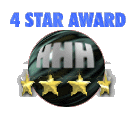
|

|

|
|
|
|
|
|
|

Golden House-Sparrow Award Site of the day, November 2, 1996 |

Cool site of the month April, 1997 |

|
|
 Site of the day August 13, 1997 |

|

|
|

|
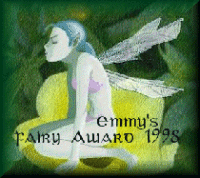
|

|
|

|

|

|
|

|
|||
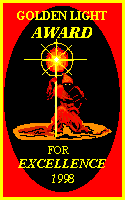
|

|

|
|
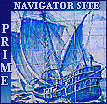
|
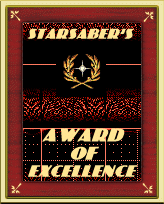
|

|
|

|
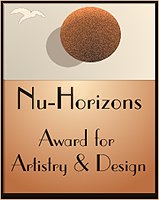
|

|
|

|

|

|
|

|
|

|
|

|
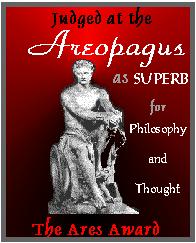
|

|
|

|

|

|
|

|

|

|
|

|

|

|
|

|
|||
Although I want to advance the cause of online philosophy, I want to keep this cause in perspective. My view is that online philosophy can and should be spectacular, the way great libraries are spectacular, but that it will always be secondary to reading hard books in quiet places and thinking and writing about them. Technology can only support this enterprise so far. In fact, though philosophy is easier to put on the web than art history or astronomy, I am convinced that the web can do much more for art history and astronomy than it can do for philosophy. The internet is a supportive service, like libraries, telephones, photocopying machines, and coffee urns. Perhaps it is a more fundamental innovation, on the order of movable type, rag paper, and artificial light. Philosophy is easier if these supportive services and technological innovations are more friendly and functional, but they should facilitate, not distract us, from our hard work. (See Ernst Cassirer's recollection of how a great library —the Warburg Library in Hamburg— helped him finish thinking and writing The Philosophy of Symbolic Forms, in the Preface to vol. 2, Yale 1955, at p. xviii.) My purpose in maintaining this guide is to help realize the possibilities of online philosophy without exaggerating or underestimating their importance. For more reflections on these lines, see my essay, The Database Paradox.
I welcome comments and suggestions of all kinds.
Return to the guide: single-file edition, multi-file edition.



![[Blue
Ribbon]](blueribbon.gif)